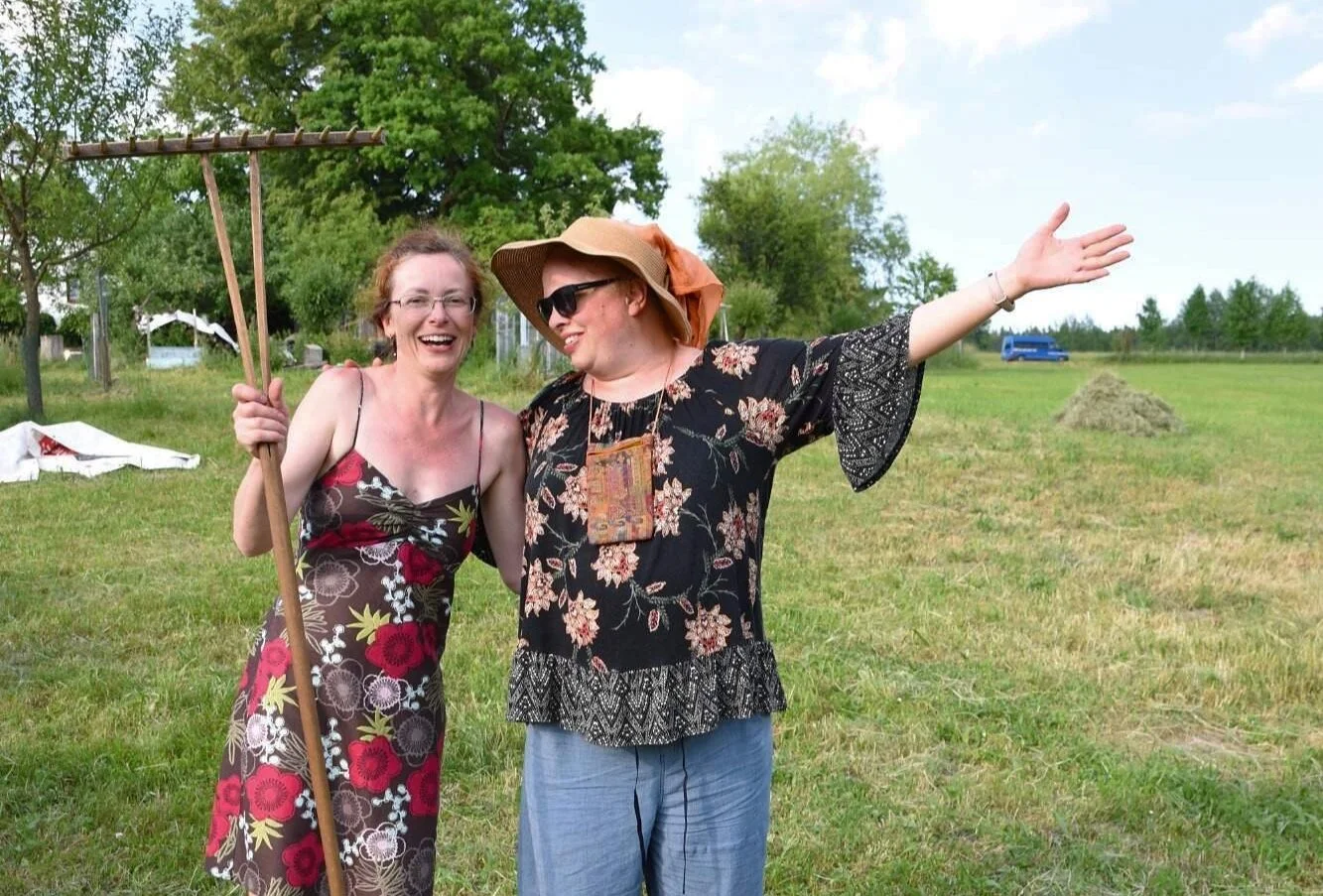Fat shaming, medical blaming and being "right"
/Those who haven’t seen me in a while are often pleasantly surprised these days when they do see me. I’ve lost a lot of unnecessary weight, have more physical energy and am much more clear headed than I was for years. This comes of beating diabetes.
I sort of feel gratified when people remark in my change of health and appearance, but I secretly also feel frustrated. For every person who expresses this happiness for me, there are three people somewhere judging a fat person. Maybe they are even some of the same people.
Even technology seems to avoid overweight people in images. My camera app on Apple devices will show all the matching pictures of everyone thin I know, but displays only the sign “updating” for hours when asked to match pictures of fat people, including me. I tried to find other images to go along with this article on Flickr and similar sites, but fat people, especially fat people looking normal and content, are strangely absent from the internet, despite being all around me in real life.
Now, I’m one of those lucky souls inhabiting a body with a brain that does structure, routine and healthy habits without too much pain and suffering. I sleep seven and a half hours, get up at 6 am, meditate, exercise, cook and eat healthy food, and all that. I’ve done it even while insanely busy with work and my kids’ medical demands, though that entailed a lot of stress. So, you might think I’d be one of those people self-righteously saying, “health is connected to healthy habits,” and therefore fat people deserve to be shamed.
But here’s the catch.
I was fat. And I had healthy habits—or at least I kept the habits I was told were healthy by the medical establishment. I exercised. I ate a “Mediterranean diet” with lots of organic veggies, legumes and whole grains. I never ate fast food and rarely ate packaged food. I hadn't had soda since I was a teenager. I thought positively, I grew my own vegetables, for crying out loud.
But in fact, I can name a dozen middle-aged, fat women I know personally who also have that sort of healthy lifestyle. In case no one has let you in on the secret, life and body shape aren’t fair.
People definitely didn’t immediately assume I was living like that when they looked at my body shape. The overriding assumption in society is that people who have a lot of extra weight are slacking off somewhere, either not exercising or eating too much or eating the wrong things
When I hear people comment on other fat people, I don’t have to speculate much on what the underlying assumptions are, because I shared them up until recently. I never went around openly blaming people for being fat, but I figured focus, effort and good habits played a large role. And by de fault that seemed to mean that those who were fat lacked good habits and self-discipline.
But they often have them in spades.
OK, let’s be clear. Not every fat person does. Many people are not focused, don’t put out daily effort and don’t have healthy habits. There are plenty of people who eat mainly fast food and junk food and that does contribute to weight and poor health.
But there are also fat people who are disciplined and focused. Some are healthy the way they are. Some aren’t.
I wasn’t. But that was because I had a chronic illness that made it so that my body could not process most of the food I was eating—specifically the parts that were various forms of carbohydrates (i.e. sugar). When you can’t process sugar well, your body starts cranking out a ton of insulin (unless you have type 1 diabetes). And tons of insulin makes you fat, even if you eat relatively little and get your exercise.
This is not the reason every fat person is fat. But it was apparently my reason. I was allergic to most of my food. I fixed that, got rid of the food that was causing excessive inflammation and massive insulin production, and that worked… for me.
I wish everyone could find a magic key to their health like that. OK, it isn’t nearly as simple as taking a supplement pill. A large part of my life now revolves around making sure I can always eat food that my body can process well, and in the modern world—so heavy on carbohydrates—that means cooking almost everything myself.
It is both hugely time consuming and very expensive, because mostly what I can eat is fresh meat and vegetables. I have to carry an electric cooler almost everywhere I go. Even a day trip is now an expedition, because I can’t just run across a place to eat or pack a few granola bars.
But still, I was relatively lucky in this. In my case, there is a solution. My last A1C was 5.0. I’m officially in the healthy range.
But I wouldn’t be if I ate so much as a whole grain bread roll or a bowl of beans. My blood sugar would shoot up and I’d feel sick for a few days. I know because I’ve accidentally eaten things I shouldn’t before I realized how exacting my body’s requirements now are.
That means I wouldn’t be in this healthy range if I’d followed the advice of the medical nutritionist my doctor sent me to. She advised me to stick to my Mediterranean diet to “make sure the disease progresses slowly.” The disease, which is considered incurable and eventually fatal, is not progressing slowly. It isn’t progressing at all, because I researched instead of just taking what I was told at face value and accepting that I was going to die slowly.
That’s how I found out about ketogenic, very low-carb diets. I’ve been following a modified diabetic version for a year and a half—with all the recommendations for balancing electrolytes and digestive health.
I wish every ailment had a hidden cure like that. But this doesn’t even work for every type of diabetes, at least not this well.
Even so, it is far from an easy fix. It can reverse all the nasty effects of diabetes, including eliminating neuropathy and improving the immune system. But it is an entire lifestyle change and for most people with type 2 diabetes it has to be permanent.
It is also a lot easier for those type 2 diabetics who were already eating a diet with lots of salads, home cooked meals and plain water. I’ve seen how much people who were addicted to junk food or even just people who never learned to cook for themselves struggle to make the switch. The battle is real.
And then again, there are many people whose health difficulties are different. Different types of diabetes may not respond the same way. There are many other reasons why people become overweight, despite healthy habits.
What I take from this is that we have to take a good hard look at the assumptions we make about others based on their health. Just as we don’t immediately assume every person with lung cancer must have been a long-time smoker, one really cannot know what causes the health problems we see in others are, even if they seem to be preventable.
There may even be a solution—such as my ketogenic diet—which the person doesn’t yet know about. It is often hard for me not to excessively “sing the gospel” about this whenever I meet people with the classic T2 body shape and warning signs. I do let people know I have the condition and that I have found a solution, but force myself not to push too hard. It doesn’t work for everyone for a variety of reasons, and really if it isn’t my body, I’m not entitled to a strong opinion.
I’ve seen many sides of this issue in the last several years. Having adopted kids with a serious neurodevelopment disorder that is entirely preventable and caused by prenatal exposure to alcohol, I often run up agains the question of whether or not to assertively point out that they are adopted whenever I encounter a new health care provider. Sure, that’s actually crucial medical information and they’ll get the memo eventually, but the fact is that if I don’t tell them right off and they see the diagnosis first, they are going to go through a period of making certain very negative assumptions.
And beyond even the level of physical health, my kids’ disability carries with it lack of impulse control, inability to grasp time and organization and difficulties in understanding cause and effect. They will struggle all their lives not only with the real consequences of those things but also with people’s assumptions about their motives. And by extension, I labor under the judgements of others about my “parenting” and why my kids “act like that.”
From being a person who thought I was right a good deal of the time, who thought fat people must be a bit lax and that punctuality, motivation and calm are all within an individual’s control, I have come to question just about everything I thought I knew for sure. I could wish I didn’t have to beat diabetes and parent kids with such tough disabilities in order to become less certain, but I don’t know if anyone could have explained it to me sufficiently without the school of hard knocks to hammer it home.
What do you think? Does hearing about the experiences of others regarding how wrong one’s assumptions can be about another person’s health and behavior second-hand make a difference?




















